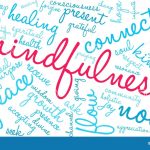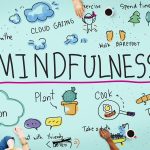Ever thought playing guitar could change your life? It’s not just about learning cool songs; it’s about becoming a better, more confident you. This guide is a journey of self-discovery using the guitar as your tool. Whether you’ve never picked up a guitar before or you’re already playing, we’ll show you how to level up your skills and, more importantly, yourself, unlocking your potential, one awesome chord at a time.
Personal Growth Through Guitar: Unleash Your Potential
Ever thought about picking up a guitar? It’s way more than just learning a few chords; it’s a fantastic way to grow as a person by fostering creativity and self-expression. Forget rockstar dreams for a moment; this is about becoming a better, more confident you, unlocking your potential, one strum at a time, using music as your personal outlet. Dive into how mastering this instrument can positively influence various aspects of your life, enriching it in profound ways.
Building Confidence Through Music: Small Wins, Big Impact
Let’s be honest, learning anything new can feel a bit scary, from mastering chord progressions to understanding music theory. The guitar is no exception. But trust me, every little victory—that first perfectly clean chord, a smoothly played melody—builds confidence in a way you wouldn’t believe. You’ll surprise yourself with what you can accomplish, tackling challenges you never thought possible! This newfound belief in yourself will spread to other areas of your life. Suddenly, that nerve-wracking presentation at work or a challenging conversation with a friend seems much less daunting. It’s amazing how much a simple song can do to boost your belief in your abilities. As you advance, consider performing for small groups, even if it’s just friends and family. Sharing your accomplishments can significantly enhance your self-assurance.
Unleashing Your Inner Artist: The Guitar’s Role as Emotional Therapy
Music is a powerful language, and the guitar becomes your personal tool for self-expression which can help improve mental well-being. It’s a safe and healthy space to explore your emotions – the joy, the sadness, even the anger – without needing words. It’s a creative outlet, pure and simple. Had a rough day? Grab your guitar and let it all out. Celebrated a big win? Play a joyful song to mark the occasion. Your feelings, transformed into music – isn’t that powerful? Experimenting with different genres and techniques can be a helpful way to process and understand feelings. Try improvising; let your fingers wander across the fretboard and see what emotions emerge in your playing, turning your feelings into melodies and harmonies.
Developing Discipline and Resilience: Practicing Musical Skills
Learning guitar takes commitment—it’s not a quick fix, but a journey of self-improvement. Consistent practice, even just 15 minutes a day, makes a huge difference in developing finger dexterity and understanding music theory. This builds discipline and persistence, skills valuable far beyond the world of music. You’ll learn to overcome frustration, appreciate the beauty of perseverance, and understand the importance of showing up for yourself, day after day. These are life skills that transfer to every aspect of your life. Embrace the challenges as opportunities to strengthen your resolve and build mental fortitude.
Connecting with Others Through Music: Finding Your Tribe
Think about joining a band, attending a jam session, or even connecting with other musicians online for peer support. Sharing your music brings you together with like-minded people. Collaborating with others fosters teamwork and improves communication skills, both essential for life outside of music. You might find that public speaking, suddenly, doesn’t feel nearly as intimidating after you’ve shared the stage a few times. Many musicians describe the supportive and collaborative atmosphere within their music communities as a source of strength and resilience. Actively seek out opportunities to play with others; the shared experience of creating music amplifies the benefits and creates lasting bonds.
Your Personal Growth Guitar Plan: Simple Steps to Success
Ready to start your personal growth journey through music? Here’s a straightforward plan:
- Discover Your Learning Style: Do you learn best from lessons, online courses, or by teaching yourself using instructional videos? There’s no right or wrong answer; find what works for you. Experiment! Consider a mix of approaches to keep things fresh and engaging.
- Set Achievable Goals: Don’t try to learn everything at once, like advanced guitar techniques. Start small. Master one chord, then another, and celebrate each tiny milestone. It’s all about gradual progress! Break down larger goals into smaller, manageable steps to maintain momentum and avoid feeling overwhelmed.
- Practice Regularly: Short, consistent practice sessions (even 15 minutes a day) are more beneficial than infrequent, long sessions, improving muscle memory. Make practice a non-negotiable part of your daily routine, just like brushing your teeth.
- Connect with Fellow Musicians: Find others who share your passion by joining a band, an online community or taking a class. Learning from others is invaluable. Attend local open mic nights or music workshops to expand your network and learn from experienced players.
- Enjoy the Ride: Don’t stress about perfection, like playing every note flawlessly. Learning is an ongoing adventure. The rewards – the music, the self-discovery – are what matter most. Remember that the journey is just as important as the destination; savor the process of learning and creating.
Overcoming Challenges in Music Education: Embracing the Growth Mindset
Will you encounter frustration along the way? Absolutely! Will there be times when you doubt your abilities? Probably. But these obstacles are opportunities for growth in developing confidence. They reveal your resilience and your ability to learn and adapt, showing you just how strong you truly are. Embrace the setbacks; they’re crucial to your journey, helping you to develop mental toughness and critical problem-solving skills. When faced with a difficult passage, break it down into smaller segments and practice each one slowly until you can play it smoothly.
The Amazing Rewards of Music: Reap the Benefits
The benefits of learning guitar go far beyond musical skill:
- Boosted Self-Confidence: Mastering new skills is a fantastic confidence booster.
- Improved Emotional Regulation: Music provides a healthy outlet for expressing emotions.
- Enhanced Discipline and Perseverance: Consistent practice builds these vital life skills.
- Stronger Social Connections: Connecting with other musicians expands your social circle.
- A Creative Outlet: Music allows you to express yourself in a unique and powerful way.
- Improved Cognitive Function: Playing guitar enhances memory, focus, and problem-solving skills.
- A Lifelong Hobby: Guitar playing is an enjoyable hobby you can continue to appreciate throughout your life.
Remember, your musical journey is entirely unique. Embrace the challenges, celebrate your successes, and enjoy the incredible power of music to help you grow and mature as a person. Your best self is waiting to be discovered, one chord at a time.
How Long to See Significant Personal Growth from Learning Guitar? Mastering the Musical Journey
Key Takeaways:
- Learning guitar boosts discipline, patience, and focus.
- The timeframe for noticeable personal growth varies greatly, so patience is key.
- A positive mindset significantly impacts progress, and keeps motivation high.
- Consistent practice is essential, even if it’s just 20-30 minutes daily, improving muscle memory.
- The journey itself, regardless of speed, offers valuable benefits and fosters creativity.
The Unexpected Rewards of String Bending and Chord Progressions
So, you’re wondering, how long to see significant personal growth from learning guitar? There’s no magic number, and no set timeline. It’s less about a specific timeframe and more about the transformation itself, fostering personal development. Think of it like climbing a mountain: the view from the top is incredible, but the journey shapes you, strengthening you along the way. You’ll find yourself more patient, focused, and resilient—qualities that extend far beyond the fretboard. Track your progress by recording yourself playing at regular intervals; this allows you to objectively assess your improvement and stay motivated and fosters personal achievement.
Early Milestones: Mastering the Basics in the First Few Months
In the initial stages, you’ll likely focus on mastering basic chords and simple strumming patterns developing hand-eye coordination. Expect some frustration; it’s part of the process. But within a few months, you’ll likely experience small victories that build confidence and promote a sense of accomplishment. You might surprise yourself with your ability to play a favorite song, a major boost to your self-esteem. This is where you begin to see a shift in your mindset; you’re learning to learn, to persevere, to celebrate progress, no matter how small. Focus on setting realistic expectations for yourself; don’t compare yourself to seasoned players, but rather celebrate your own individual progress.
A Year’s Progress: Embracing the Mindset Shift and Musical Creativity
After a year of dedicated practice (even just 20-30 minutes a day), you’ll likely notice a significant improvement in your dexterity and coordination and understanding music theory. More importantly, you’ll start to reap the rewards beyond the musical skill itself, fostering personal development. You’ll have developed a stronger sense of discipline and problem-solving skills. The process of breaking down complex musical challenges mirrors life’s challenges and you learn to tackle them with greater confidence. You will be able to apply the principles of perseverance and focus in other areas of your life. Start experimenting with songwriting or improvisation; this allows you to tap into your creativity and express yourself in unique ways and fostering personal growth.
Long-Term Transformation: Expressing Yourself Beyond the Notes
Beyond the first year, how long to see significant personal growth from learning guitar becomes less about mastering specific techniques and more about shaping your personal journey. You’ll likely explore different musical styles, expanding your creative expression and boosting your confidence. This is where the true emotional growth shines, improving mental well-being. This continuous learning process fosters a growth mindset – a belief in your ability to improve and adapt, becoming more resilient to life’s inevitable setbacks. This is a skill that extends far beyond musical proficiency. Consider exploring music theory in more depth; understanding the underlying principles of music can unlock new levels of creativity and self-expression.
Personalizing Your Path: Tailoring Your Musical Journey
The journey is different for everyone. Some might progress faster than others, but everyone’s journey is equally valuable, enriching their lives. Remember, it’s the consistent effort and positive attitude, not just the speed of progress, that unlocks the greatest personal benefits. Your individual learning style, access to resources, and dedication all play a role. Find a mentor or experienced guitarist who can provide guidance and support; their insights can be invaluable on your musical journey.
The Power of Persistence: Developing Musical Skills and Mental Strength
The most rewarding aspect is not just the ability to play guitar; it’s the development of grit, patience, and resilience enriching your personal development. These are assets that will serve you in every facet of your life—at work, relationships, and personal pursuits. Learning guitar is a journey of self-discovery, a testament to the human ability to grow, adapt, and master new skills. Embrace the challenges as opportunities to strengthen your character and build mental toughness.
Boosting Self-Esteem Through Guitar Lessons: Proven Techniques for Confidence Building
Want to feel more confident while enhancing your musical skills? Learning guitar might be the answer. It’s more than just learning chords; it’s a journey of self-discovery, fostering personal development.
Key Takeaways:
- Improved cognitive skills (memory, focus, problem-solving) leading to enhanced musicality.
- Enhanced emotional well-being (stress reduction, creative outlet, and improved mental health).
- Increased social interaction (joining bands, meeting fellow musicians, and engaging in collaborative projects).
- Boosted self-esteem through accomplishment and self-expression, enhancing your overall well-being.
The Unexpected Confidence Boost: How Music Improves Confidence
Why does learning guitar build confidence? It’s a process of mastering a skill, one small victory at a time, fostering personal achievement. Each chord you learn, each song you conquer, is a testament to your dedication and perseverance, boosting your confidence. This builds self-efficacy – the belief in your ability to succeed. Think of it like climbing a mountain; each step forward, no matter how small, brings you closer to the summit. That feeling of accomplishment is incredibly empowering, fueling your self-esteem. Set specific, measurable, achievable, relevant, and time-bound (SMART) goals for your guitar playing; this provides a clear roadmap for your progress and helps you stay motivated.
Beyond the Chords: Cognitive Benefits of Musical Training
Learning guitar isn’t just about muscle memory and finger placement. It’s a workout for your brain too, improving cognitive function! You’re simultaneously engaging different parts of your brain: reading music, coordinating hand movements, and memorizing melodies. This mental agility translates to other areas of your life, sharpening your focus and problem-solving skills. Suddenly, that challenging work project doesn’t seem so daunting as musical training sharpens your mind. Challenge yourself to learn a new song or technique each month; this keeps your brain engaged and helps you expand your musical skills.
Emotional Release and Creative Expression Through Musical Instruments
Ever felt overwhelmed and in need of stress reduction? Picking up your guitar can be a powerful release, offering improved mental health. Music becomes a safe space, a canvas for expressing your emotions without words. It’s a form of therapy, a way to process your feelings and find peace. Studies show that playing music releases endorphins, those lovely “feel-good” chemicals that naturally lift your mood. Experiment with different musical genres to explore a wider range of emotions and expressive possibilities.
Unlocking Your Social Side: Building Relationships Through Music
Learning guitar can open up unexpected social opportunities leading to increased social interaction. Joining a band, taking group lessons, or even casually jamming with friends – these connections foster a sense of belonging and build your confidence in social settings. Sharing your music with others builds self-esteem, showing you’re not only capable but also creative and talented, enriching your social life. Attend local jam sessions or open mic nights to connect with other musicians and share your music in a supportive environment.
Practical Steps to Build Confidence Through Music
Step 1: Start Small, Dream Big. Don’t pressure yourself to be perfect, and begin with simple chords and gradually work your way up. Celebrate each milestone – no matter how small for your self-esteem.
Step 2: Practice Consistently. Even short, daily practice sessions are more effective than infrequent marathon sessions solidifying your musical foundation. Consistency is key to progress and builds momentum for your confidence to grow.
Step 3: Find Your Tribe. Join a class, a band, or an online community connecting with fellow musicians. Sharing your passion with others creates support, encouragement, and a sense of belonging boosting your happiness.
Step 4: Embrace Imperfection. Mistakes are part of the learning process, so don’t get discouraged; just keep going and focus on your progress. Your progress is what matters most on your musical journey.
Step 5: Perform (Even for Yourself). Playing for others, even just family or friends, builds confidence and gets you comfortable sharing your talent contributing to personal growth. Start small and work your way up to larger audiences as your comfort level increases. Record yourself playing and share it on social media or with friends; this can be a great way to get feedback and build confidence.
The Power of Boosting Self-Esteem Through Guitar Lessons: Proven Techniques for Confidence Building
Learning guitar is more than just acquiring a new skill in music; it’s a transformative journey of self-discovery. It’s about challenging yourself, celebrating your growth, and discovering a new level of confidence you never knew you possessed while enriching your personal development. Are you ready to unlock your potential, strengthen your skills, and grow as a person?
Overcoming Challenges and Building Resilience: A Guitarist’s Journey to Personal Growth
Want to unlock your inner strength through music? Consider the guitar and its benefits. It’s more than just an instrument to play songs; it’s a journey of self-discovery that improves mental well-being. Learning to play can be surprisingly transformative, helping you build resilience and conquer personal hurdles through musical endeavors.
Why the Guitar? More Than Just Chords and Melodies
What makes the guitar so special in this context as a stress reliever? It’s the unique blend of challenge and reward it offers when learning music. Learning any instrument requires dedication, patience, and perseverance – qualities crucial for building resilience as well as improving stress management. Each conquered chord, each mastered song, builds confidence and boosts your self-esteem. You’ll find yourself tackling obstacles, both musical and personal, with newfound determination thanks to musical training. Explore different genres of music on the guitar; this can help you discover new ways to express yourself and cope with challenges.
Facing the Music: Overcoming Obstacles and Cultivating Resilience
The path to guitar mastery isn’t always smooth and effortless. You’ll encounter frustrating plateaus, moments of self-doubt, and maybe even the urge to quit your musical pursuits. But these struggles are precisely where the true growth lies, improving your overall resilience. Overcoming Challenges and Building Resilience: A Guitarist’s Journey to Personal Growth isn’t about avoiding difficulties; it’s about learning to navigate them for personal development. Think of each challenge as a chance to hone your perseverance, your problem-solving skills, and your ability to adapt to the music. When you encounter a challenging passage, break it down into smaller, more manageable segments and practice those segments slowly until you can play them smoothly.
Building Resilience, One Chord at a Time: Linking Music to Personal Strength
How does this translate to real-life resilience and positive change? Learning guitar cultivates several key attributes:
- Discipline: Consistent practice, even for short periods, builds discipline—a valuable life skill in various contexts.
- Problem-Solving: Decoding musical theory, learning new techniques, and troubleshooting problems strengthens your analytical thinking skills leading to improved cognitive function.
- Emotional Regulation: Music is a powerful emotional outlet for personal development. Playing can soothe anxieties, process emotions, and provide a creative escape, and offering stress reduction.
- Self-Esteem: Mastering new skills boosts confidence and self-worth, fostering personal growth.
- Patience: Learning guitar requires patience and the ability to accept incremental progress.
Practical Strategies for Success on Your Musical Journey
Ready to start your musical journey towards resilience and personal growth? Here’s how to make the most of it with musical learning:
- Find the Right Teacher: A supportive instructor can make a huge difference, providing guidance and motivation.
- Set Realistic Goals: Start small, celebrate milestones, and avoid overwhelming yourself to promote a sense of accomplishment.
- Embrace the Process: Enjoy the journey of musical exploration! It’s not about instant perfection but continuous improvement, fostering lasting skills.
- Join a Community: Connecting with other musicians provides encouragement and support contributing to well-being.
- Be Patient: Learning takes time and effort, so don’t get discouraged by setbacks; view them as learning opportunities to improve your musical expression. Practice scales and chord progressions regularly to build a strong foundation and improve your technical skills.
Beyond the Strings: Life Lessons Learned from Musical Growth
The impact of learning guitar extends beyond the musical realm enriching personal development. It teaches you about perseverance, self-belief, and the power of consistent effort contributing to overall resilience. These are life skills that will serve you well, both on and off the stage for personal growth. The rewards are immense: a sense of accomplishment, increased self-confidence, stress reduction, and a powerful new way to express yourself through music. Take breaks when you feel frustrated or overwhelmed; stepping away from the guitar for a few minutes can help you clear your head and return with a fresh perspective.
Taking the First Step: Embarking on a Musical Adventure
Ready to embark on your personal growth journey while building resilience? You can start by taking your first lesson or searching for online resources that support musical knowledge. Don’t hesitate – your future self will thank you for exploring and experimenting with music. Invest in quality learning resources, such as online courses or instructional books; these resources can provide structured guidance and help you stay on track.
Key Takeaways:
- Learning guitar can be a powerful tool for building resilience and improving stress management.
- The challenges faced while learning translate into valuable life skills.
- The benefits extend beyond music, impacting self-esteem, emotional regulation, and problem-solving abilities.
- Consistent practice and a supportive community are key to musical journey and success.
- Best Mindfulness Books for Anxiety, Sleep, and Daily Peace - January 29, 2026
- Books On Mindfulness For A Happier, More Present Life - January 28, 2026
- Essential Meditation Books for Beginners and Experienced Practitioners - January 27, 2026
















